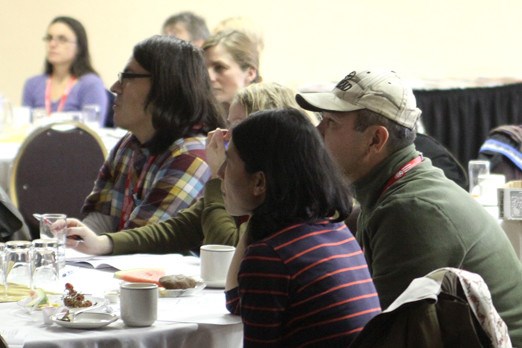Simon Frogg raised his family by hunting, trapping and fishing.
Historically Wawakapewin First Nation, where Frogg is the band manager, served up to 300 people in the region north east of Pickle Lake with fish and game.
“No matter how much you take out it’s always there,” Frogg said. “It was easy for us to maintain ourselves.”
And while the fish and game were still abundant in Long Dog Lake and the Ashewieg River, the winter-road access community needed to rely on external sources for other food. But starting seven years ago, the community of 30 decided to relearn traditional harvesting and create its own food supply.
“We’re very isolated, we don’t have an airport so everything’s by charter,” Frogg said. “It’s very hard for us so anything that we produce comes in very handy.”
Partnered with the University of Ottawa with help from Health Canada, the whole community is now growing everything from potatoes to strawberries.
“We’re a very small community so whatever we do involves the whole community,” he added.
Getting communities in the Far North to have greater food autonomy is what the second Nishnawbe Aski Nation Food Symposium is all about. The three day conference, which kicked off Tuesday at the Nor’Wester Resort Hotel, is trying to address food challenges in those communities while looking for solutions.
NAN community project co-ordinator Joseph Leblanc said food is not always at the forefront of discussions but it’s an important topic.
“We’re sharing and learning with each other,” Leblanc said. “This is really about building food sovereignty in Nishnawbe Aski Nation.”
Organic farmer Renata Thiboutot runs Mile Hill Farms outside of Thunder Bay. As a panellist during the
“Growing Food in the North” presentation, Thiboutot said she was asked specific questions ranging from soil preparation to how to sell specialty produce in major markets like Toronto. She said she wants to do whatever she can to help people get back to growing their own food.
“I think it’s such a valuable thing that’s been lost by so many people is how to produce their own food.”
